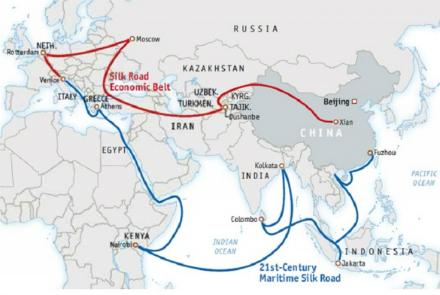Chinese Ambassador to Afghanistan Liu Jinsong says his country hopes to include Afghanistan in the Belt and Road Initiative (BRI).
This came after high-level delegates, including President Ashraf Ghani, took part in this weekend’s Shanghai Cooperation Organization summit in China.
“Afghanistan expects to have more benefit from the Belt and Road project. This country has great expectations from the Shanghai Cooperation Organization,” the ambassador said.
He said there were positive signs coming from different social sectors in Afghanistan.
The Ministry of Economy meanwhile said Afghanistan is part of the Belt and Road project due to its strategic location in the region. Ministry officials also said the project can help boost economic stability in the country.
“We should focus on issues inside the country. Our railway system should be established,” said Suhrab Bahman, a spokesman for the Ministry of Economy.
Analysts said the project is crucial for the region therefore Afghanistan should try to connect with the route.
“The project is based on trade connectivity. Such projects are win-win projects for Afghanistan and China,” said Mohammad Yusuf Rahnaward, advisor of the council on joint trade between Afghanistan and China.
The Silk Road Economic Belt and the 21st-century Maritime Silk Road or The Belt and Road Initiative (BRI) is a development strategy proposed by the Chinese government that focuses on connectivity and cooperation between Eurasian countries, primarily the People's Republic of China (PRC), the land-based Silk Road Economic Belt (SREB) and the ocean-going Maritime Silk Road (MSR).
The initiative was known in English as the One Belt and One Road Initiative (OBOR) until 2016.
The Chinese government calls the initiative "a bid to enhance regional connectivity and embrace a brighter future," while critics call it a push by China to take a larger role in global affairs with a China-centered trading network.


